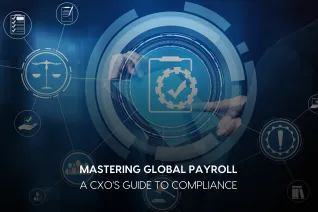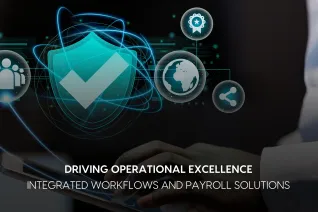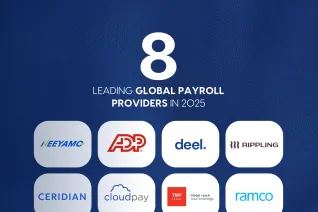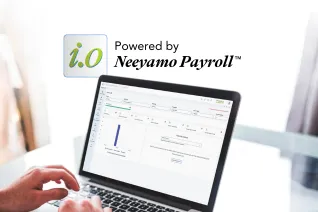Next Generation Payroll – Driven by Robotic Process Automation
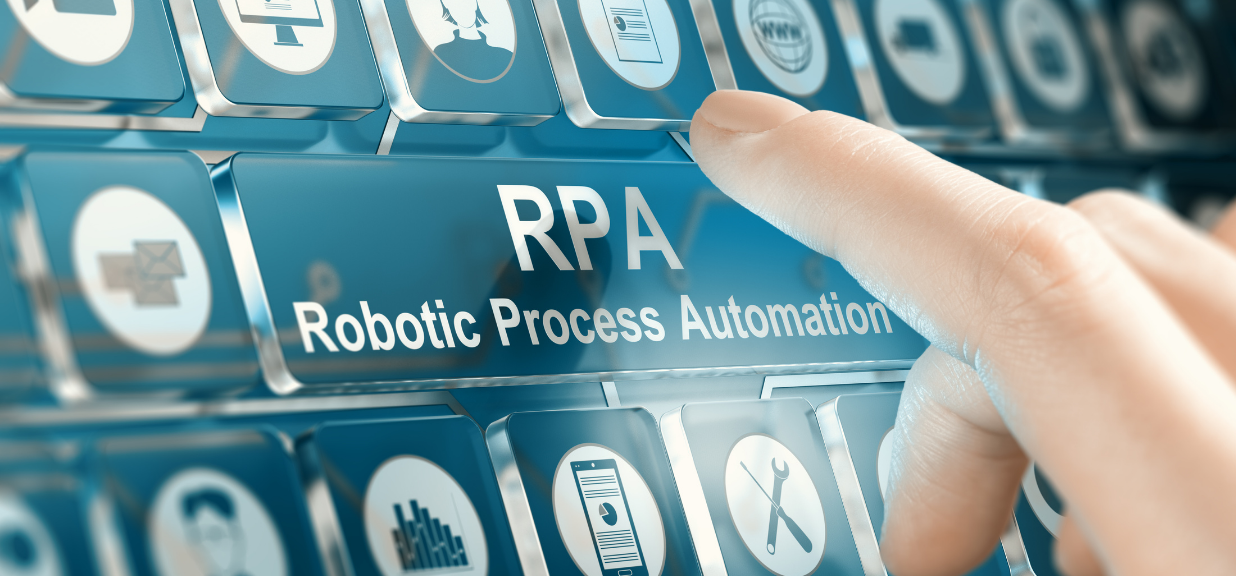
The increasing adoption of Robotic process automation (RPA), a technology that enables digital transformation, is altering the landscape of various industries worldwide.
So, what is the impact of RPA in Payroll & HR?
Business processes across both industry streams have an extensive list of repetitive tasks that demand intense manual effort. RPA technology is capable of emulating mundane human actions. It can be configured to perform monotonous activities in a business process efficiently, saving time and money. Payroll is a business process with many repetitive, rule-based tasks that can be automated with the help of RPA.
Application of RPA in Payroll Process
Introducing RPA in payroll is made easier by the presence of plentiful administrative tasks. Implementing RPA in a payroll solution requires meticulous process analysis and domain expertise.
Let us look at how Robotic Process Automation is structurally incorporated into a payroll platform:
Robotic Automation Cycle
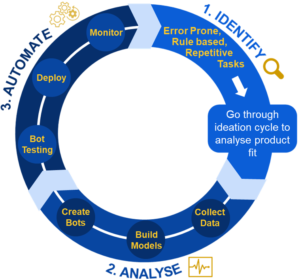
1. Identify – Identification of Prospective Areas:
To begin with, business analysts carefully study the entire payroll cycle from input to output, and all monotonous activities are identified. For instance, tasks such as data entry (manual input), data validation, compliance auditing, master data changes etc., are perfect candidates for robotic automation. By eliminating the manual intervention in these areas, 70% of the overall payroll process can be automated.
2. Analyse – Deep Analysis and Development of Intelligent Programs (Bots):
Once the potential areas have been identified, data pertaining to those payroll activities are collected and translated into models that replicate repetitive human actions using algorithms. Programs thus developed based on each data model act as an intelligent solution that automates the identified mundane activities. These smart programs are called “bots”, designed to work automatically on specific rule-based tasks. Multiple bots are created to handle various repetitive activities in the pay cycle, such as validation, calculation, audit etc.
3. Automate – Bot Testing, Implementation and Monitoring:
Bots undergo a rigorous testing protocol before implementation and are monitored constantly by payroll and technical experts for maximum performance and accuracy. After testing, the solution is introduced into the live system environment for real-time functioning. Bots are also trained to monitor and track information about repetitive activities through algorithms to facilitate sustained automation.
Various bots are being developed at Neeyamo’s Innovation lab
At Neeyamo, we have a dedicated innovation lab that constantly strives to maximize automation in the payroll process. Over the years, experts at Neeyamo have analyzed the payroll cycle deeply and have developed bots to automate various repetitive activities.
Validation Bot: Input validation during payroll processing is a monotonous task that requires frequent manual intervention. This process is a breeding ground for human error, and the amount of effort and time invested by the personnel working on this task is typically high. The validation bot can perform intelligent validation of the inputs received by cross-referencing the data with the source (HCM (Human Capital Management), ERP, Time and Absence System etc.). This ensures data accuracy and eliminates re-runs in the input validation process.
Calculation Bot: Besides the standard payroll components such as basic salary and allowances, the statutory elements (tax deductions) must be factored in when calculating payroll. Tax laws vary from country to country and frequently change according to regulatory norms. Besides regular payroll calculation, a calculation bot is trained through algorithms to identify country-specific compliance components and perform deductions intelligently. This increases the payroll output accuracy while eliminating manual interventions to factor in local compliance components for payroll calculation.
Audit Bot: The audit bot is deployed in the compliance engine to audit compliance efficiency and accuracy. It is trained to send automated reports on compliance along with alert notifications on errors. With the assistance of an audit bot, payroll compliance accuracy increases up to 100% without frequent human interventions.
Chat Bot: Chatbot is a virtual assistant like Amazon’s Alexa or Apple’s Siri that can answer standard payroll queries through text and voice support. The chatbot is trained to be contextually sensitive and can respond to various common payroll-related questions without invoking manual intervention. This ensures easy, quick, and accurate responses to frequently asked payroll questions without human mediation to answer FAQs.
Key benefits of availing a payroll solution powered by RPA Bots
Cost Saving Benefits: One of the primary benefits of robotic process automation is substantially reducing the cost incurred by an organization to complete repetitive tasks. Bots are capable of working 24X7, and they do not charge extra for working overtime. They minimize human intervention while delivering faster and better output, leading to significant cost savings.
Elimination of Errors in the Payroll Process: Humans are prone to making errors. Multiply the possibility of manual error by the number of personnel working on routine payroll tasks, and the chances of incurring human error increase by that amount. By replacing the manual effort involved in repetitive tasks with bots, the chances of errors in these payroll processes are reduced. Also, by performing the assigned tasks with 100% accuracy, bots will eliminate the need to re-validate the delegated activities.
Increased Processing Speed and High-Quality Output: The time taken by a human to complete a given task (such as form validation) differs under different circumstances based on multiple factors. Bots can achieve the same task in seconds almost every time. With unmatched accuracy and processing speed, bots can deliver high-quality output that guarantees satisfaction.
Insightful Analytics and Continuous Improvement: Bots are programmed to track, collate, and store valuable data that can be analyzed and converted into models for future automation. Bots’ ability to self-learn through algorithms increases the potential to identify further and automate processes to achieve more business benefits.
Better Experience and Satisfaction: The end-user experience increases significantly with enhanced automation. Chatbots act as virtual assistants and can provide intuitive responses to common payroll queries instantly. Automation of input validation and compliance auditing reduces human efforts, which translates into a superior experience and satisfaction for employees.
Paying employees worldwide has become more simplified than ever with robotic automation. RPA has made payroll more intriguing by removing the tedious processes and encouraging employers to focus more on providing a better experience to employees. The ultimate benefits are passed on to organizations (and their employees) that take early advantage of these modern technologies. And global payroll providers like Neeyamo strive to constantly innovate and deliver the latest and the best solution to customers across the globe.
Latest Resources
Stay informed with latest updates
If you're curious and have a thirst for knowledge pertaining to the HR, payroll, and EOR universe, don't miss out on subscribing to our resources.






